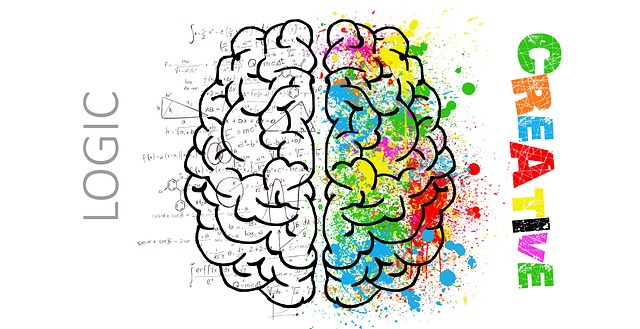Innovación didáctica Acción precipitada o reflexionada
Contenido principal del artículo
Resumen
En las instituciones educativas hoy en día se plantea un componente que prácticamente ha sido ajeno y un poco extraño en el aula de clases en el desarrollo y potenciación del oficio y profesionalismo del maestro, tal como lo señala Colonia (2008 a) en un post de su blog Innovaciones y Ensayos en la Escuela, en la publicación Hernández (2012) en un post de su blog Diálogo entre profesores y en la publicación de Hernández (2015) en un post del blog Lo que debes saber de la educación especial; cómo es la práctica de investigación formativa, que permita evidenciar los logros y cuasilogrados de los actores en el aprendizaje de los saberes y conocimientos escolarizados que circulan en el aula de clases.
Bajo esta perspectivas es urgente que emerjan en el accionar diario del maestro instrumentos pedagógicos como: la autobiografía, el diario pedagógico que le posibilitan la emergencia de herramientas didácticas que estructuren la transformación e innovación en el aula, que desarrollen en los encuentros nuevas formas de abordaje del saber, para lo cual, se plantea en la innovación didáctica desde la matemática los siguientes pilares: un dibujo, referente para el desarrollo conceptual y procedimental, desde lo histórico y desde lo social; la relatoría, considerada como la caja negra de la innovación, donde se registran los aconteceres y posibles acontecimientos que surgen de la cotidianidad de cada encuentro, ella se segmenta en secciones para diferenciar las actividades y las estrategias pero se integran para darle sentido al aprendizaje desde diferentes marcos conceptuales (secciones); la autoevaluación,
que permite transformar una evaluación desde la nota, a una evaluación por el saber apropiado y la maqueta, posibilita que el aplastamiento del mundo, se vea en dimensión real y proporcional.
Detalles del artículo
Sección

Esta obra está bajo una licencia internacional Creative Commons Atribución-NoComercial 4.0.
Cómo citar
Referencias
Aduriz, Agustín y otros (2002). Actualización en didáctica de las ciencias naturales y las matemáticas. Bogotá. Editorial Magisterio.
Bruer, Jhon T. Escuelas para pensar una ciencia del aprendizaje en el aula. Buenos Aires: Paidós. Ministerio de Educación y Ciencia.
Carretero, Mario. Constructivismo y Educación. Buenos Aires. Aique. Primera Edición.
D’Amore, Bruno, Fandiño Martha I (2002). Un acercamiento analítico al “triángulo de la didáctica”. Recuperado de http://www.dm.unibo.it/rsddm/it/articoli/damore/443%20triangulo%20de%
la%20didactica.pdf
Camilloni, Alicia R. W. et al. La evaluación de los aprendizajes en el debate didáctico contemporáneo. Editorial Paidos.
Cantoral Ricardo et al. Desarrollo del pensamiento matemático. Editorial Trillas. Primera edición.
Colonia, O. (6 de Septiembre de 2008 a). Propuestas y posibles respuestas que permiten seguir con la apuesta. [Post en un blog]. Innovaciones y Ensayos en la Escuela. Recuperado de http://oscarcol.blogspot.com
Colonia, O. (6 de Septiembre de 2008 b). Una mirada de reflexión sobre la innovación [Post en un blog]. Innovaciones y Ensayos en la Escuela. Recuperado de http://oscarcol.blogspot.com
Colonia, O. (6 de Septiembre de 2008 c). Una mirada histórica a nuestra vida, reflexa la historia y origen de nuestras acciones. [Post en un blog]. Innovaciones y Ensayos en la Escuela. Recuperado de http://oscarcol.blogspot.com
Colonia, O.(16 de Septiembre de 2007 a). Las matemáticas de la formalización a la contextualización. [Post en un Blog]. Innovaciones y Ensayos en la Escuela. Recuperado de http://oscarcol.blogspot.com
Colonia, O. (17 de Agosto de 2007 b). La circulación del conocimiento en la Escuela. [Post en un blog]. Innovaciones y Ensayos en la Escuela. Recuperado de http://oscarcol.blogspot.com
Gallego Badillo, Rómulo (1997). Discurso sobre el constructivismo. Santafé de Bogotá. Mesa Redonda Magisterio. Segunda
edición.
Hernández, L. (5 de Octubre de 2012). “El Mundo de la Matemática en el Contexto de la Naturaleza” Por: Oscar Colonia. [Mensaje en un blog]. Diálogo entre profesores. Recuperado de
https://http://dialogoentreprofesores.blogspot.com/2012/10/elmundo-de-la-matematica-en-el.html
Jaramillo. Juan Manuel, Duque, Luz Marina y otros. Thomas Kuhn. Santiago de Cali. Editorial Univalle.
Parra, Cecilia y Gaiz Irma. Didáctica de la matemática.
Vásquez, Rodriguez Fernando (2004). Pregúntale al ensayista.Editorial Kempis. Primera Edición.





